Laser pointers are popular toys, and it can be fun watching your cat chase after that little red dot. But if you’re wondering whether laser pointers are safe for cats, the short answer is that laser pointers are controversial because they can be dangerous to cats if not used properly.
The good news is that if you do use a laser pointer carefully, it can be a safe and suitable toy for your cat. Let’s take a closer look at how to use these toys correctly.

Why Do Cats Like Lasers?
Cats love laser pointers for the same reasons that they love any other toys. They’re fast-moving and unpredictable and engage their natural-born predator brain. Unlike kicker toys, which your cat has to interact with to get it moving, the quick movement of a laser pointer can encourage even the most laid back cat to indulge in playtime. If your cat turns up their nose at most toys, a laser pointer is almost guaranteed to catch their interest.
Playing is a great way to encourage your cat to exercise and help them maintain physical strength. Play is also a great enrichment activity that helps keep your cat from getting too bored. Hunting that elusive red (usually) dot can engage your cat’s brain and keep them mentally stimulated.
Are Laser Pointers Bad for Cats & Can They Hurt Their Eyes?

You should never use a cat laser toy outdoors or point it out a window, at people, cars, or planes. Cat lasers are indistinguishable from laser sights on guns or more powerful lasers that can cause eye damage, even from long distances. Many places also prohibit the public use of lasers of any kind.
Yes, they may hurt your cat’s eyes, even though most laser pointers are of a low level and are approved as safe to use in a domestic situation. Laser pointers sold as cat toys will usually have power between 1-5 milliwatts, which is low compared to other lasers, however, they are still considered dangerous if aimed directly at your cat’s eyes.
Therefore, you should never shine a laser pointer directly into your cat’s eyes or the eyes of anyone else! The reason that laser pointers designed for use with cats are usually red is that this color is considered a “weak” laser. However, the power of a laser also depends on other factors such as the technology used to create the laser and its intended application. Therefore, just because a laser is red doesn’t mean it’s perfectly safe for cats. More importantly, it doesn’t mean it’s safe to flash in their eyes (or in the eyes of any other pet or person).
Are There Any Psychological Effects of Playing With Laser Pointers?
If laser pointers aren’t used considerately, then they can cause psychological effects on your cat.
- Hunt
- Catch
- Kill
- Eat
- Groom
- Sleep
Mimicking this in a domestic situation can help your cat.
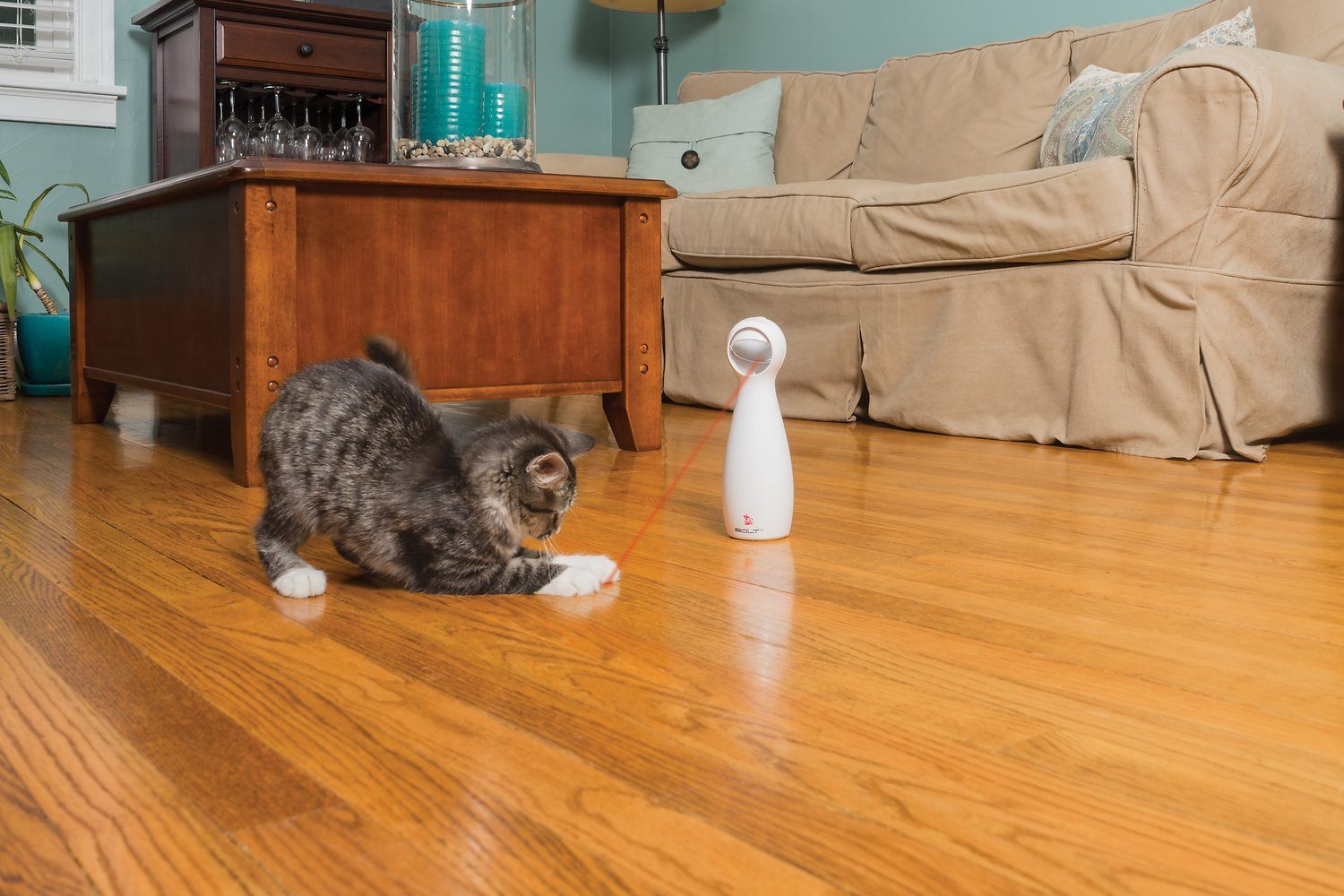
The problem with using a laser for cats can be that when the “hunt” ends, your cat can’t actually pounce on or “catch and kill” the red dot. This can lead to frustration for your cat — they don’t understand why the hunt didn’t end with them catching something in their paws!
If you only play with a laser pointer with your cat, then the consistent lack of completing their hunt can make them frustrated. You might think that your cat is having fun as they try harder and harder to catch that dot, when in fact, they’re getting more and more frustrated at never being able to catch what seems to be right under their paws.
Another issue with lasers is that cats are usually at a very heightened level of alertness when they’re chasing a laser. If the hunt ends abruptly, they may sometimes resort to biting, scratching, or attacking another pet or even you as a way to “let out” their energy. This is a form of redirected aggression, and such attacks can often be very painful for the recipient.

How to Use a Laser Pointer and Play With Your Cat Safely
If you do decide to play with a laser pointer, the good news is that there are a few ways that you can do so safely, while making sure your cat stays engaged.
First, make sure anyone using the pointer knows not to shine it into your cat’s eyes (or anyone else’s, for that matter!).
In terms of making sure that your cat doesn’t get frustrated by not being able to “catch” the laser, it’s important to end a play session by rewarding your cat with the satisfaction of catching their target. There are two different ways that you can achieve this.
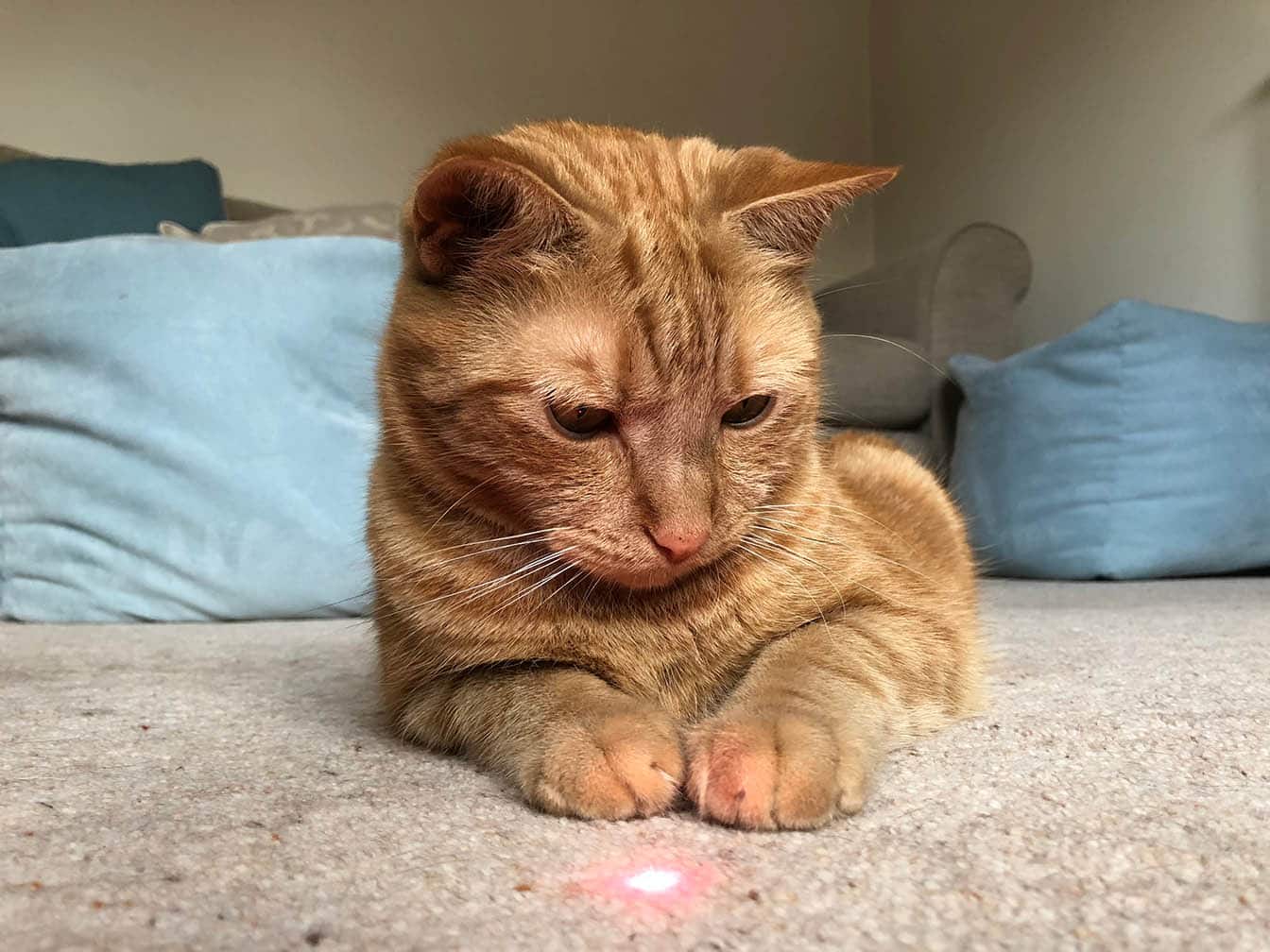
Option 1
End the “hunt” by shining a laser pointer on one of your cat’s toys. As they pounce on the laser, they will “catch” the toy and feel like they’ve won. They can then move on to the “finishing” part of the hunt, kicking their toy and feeling the satisfaction that comes with catching their prey.
Option 2
After your cat has run after the laser pointer for a while, you can switch to playing with a physical toy. We like toys attached to a fishing rod because you can use them to mimic the erratic movements of the laser pointer. These are the best type of toys for making sure your cat gets the satisfaction of completing a “hunt”.
After your cat has caught their toy, they’ll usually move on to a calmer state of mind, so it’s possibly a good idea to coordinate the end of your play session to coincide with something relaxing, like your cat’s mealtimes. They’ll probably then settle down to a satisfying grooming session before finding a cozy spot for a long nap.
Keep Laser Pointer Sessions Short & Sweet
Using a laser for cats can be tiring, and their hunting instincts will often override their other senses. Your cat can easily become frustrated, especially if they’re not used to such high-intensity exercise. Keep sessions short, and end them before your cat becomes too aggressive.
What About Laser Pointers on Pet Cameras?
Many pet cameras now offer laser pointer toys, so you can keep your cat entertained while you’re away from home. These can either be activated to operate automatically, or you can control them manually using the linked app on your phone.
If you do want to use the laser function on your pet camera, we recommend only doing so on the manual function. This way, you can supervise your cat’s interactions and even make sure you direct the laser toward a toy as you end the session.

Wrapping Up
Laser pointers can be a fun toy to keep your cat mentally stimulated and physically exercised. But they need to be used with more care than your average toy. Lasers can harm your cat’s eyes if they look directly at the laser, so make sure anyone using this toy knows never to shine it directly in your cat’s face.
A big problem with laser pointers is that your cat can never “catch and kill” the red dot. Over time, this can lead to them becoming frustrated, which in turn, can lead to the development of problem behaviors like furniture scratching and aggression.
The solution to safe play with a laser pointer is to always point the laser at the floor or wall, keep sessions short so your cat doesn’t overexert themselves, and end by allowing your cat to “catch” a physical toy. Following this routine will keep your cat happy, and you can rest easy knowing that they’re safe.
Featured Image: Wanda_Lizm, Shutterstock
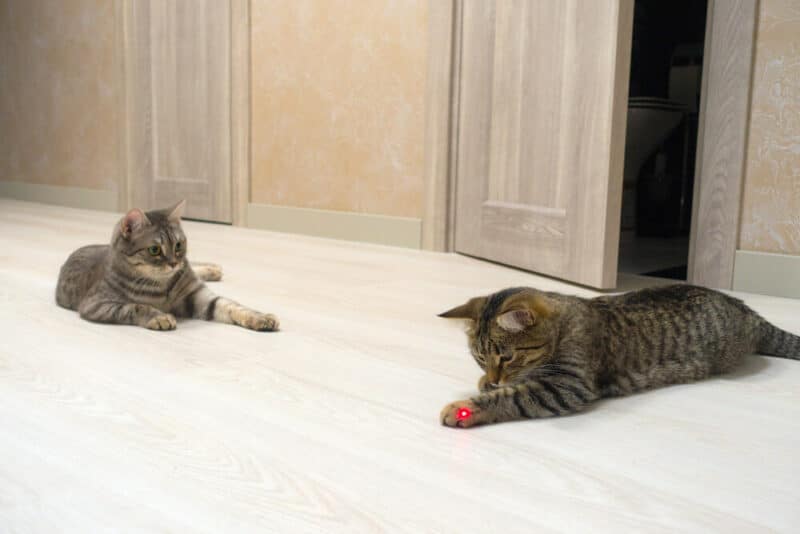


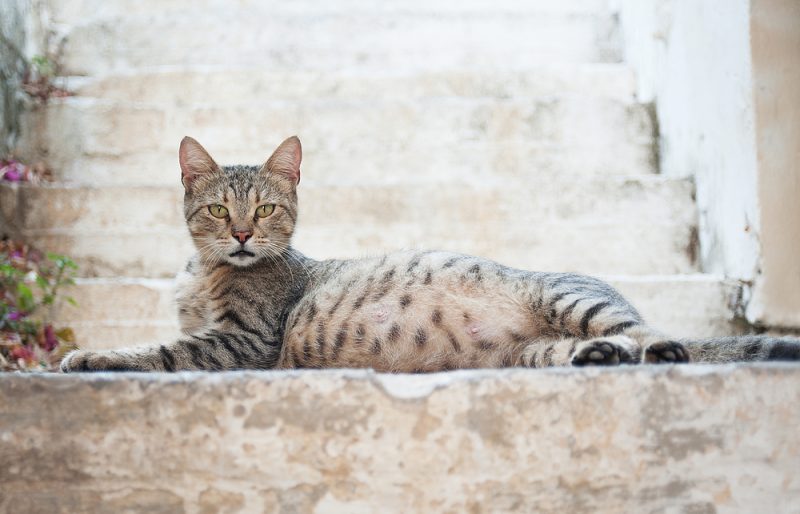
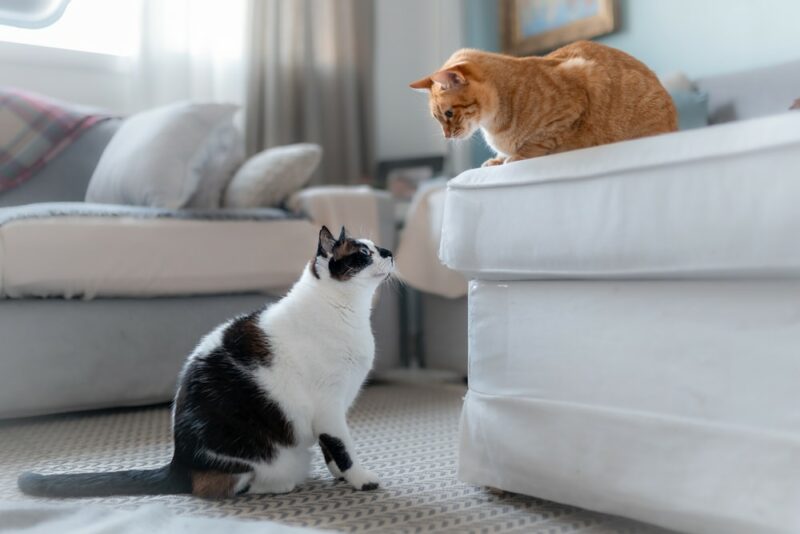
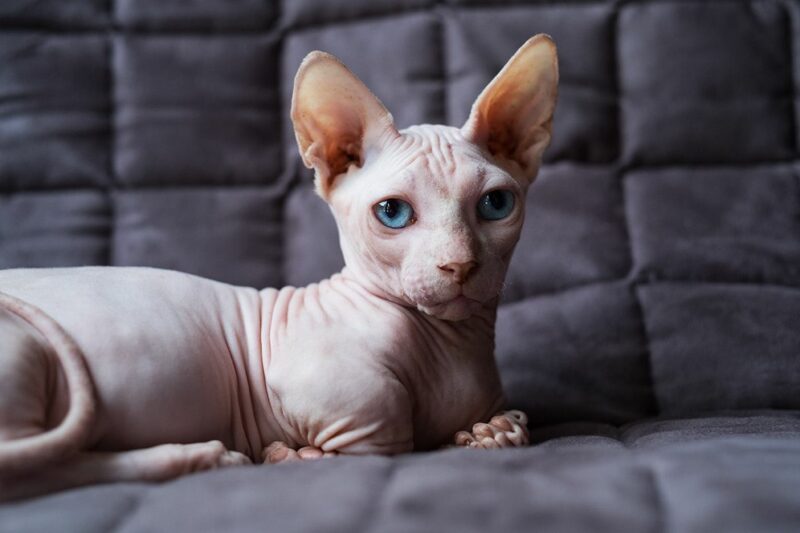


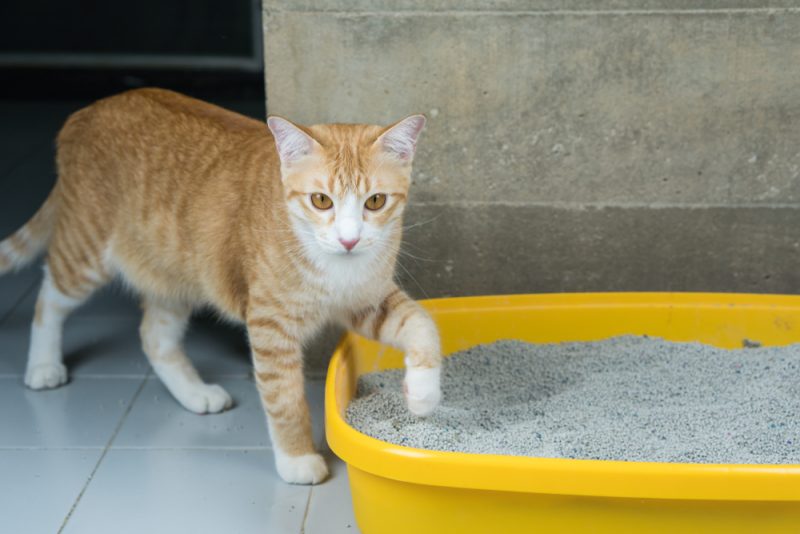
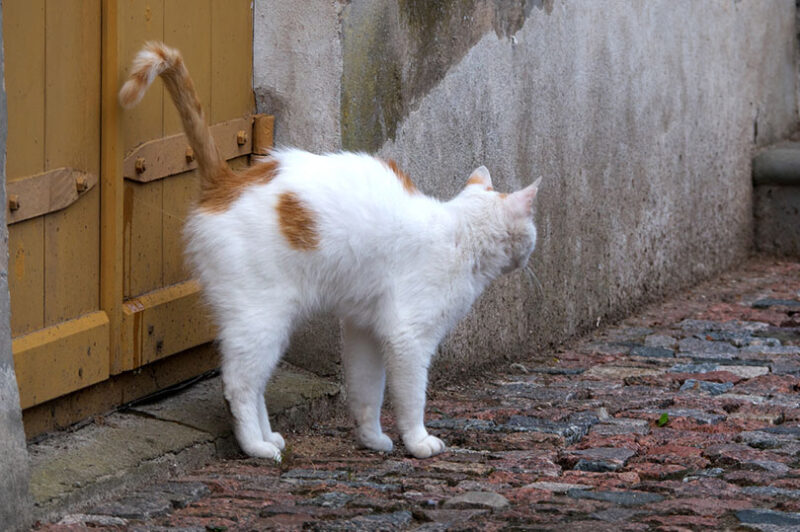


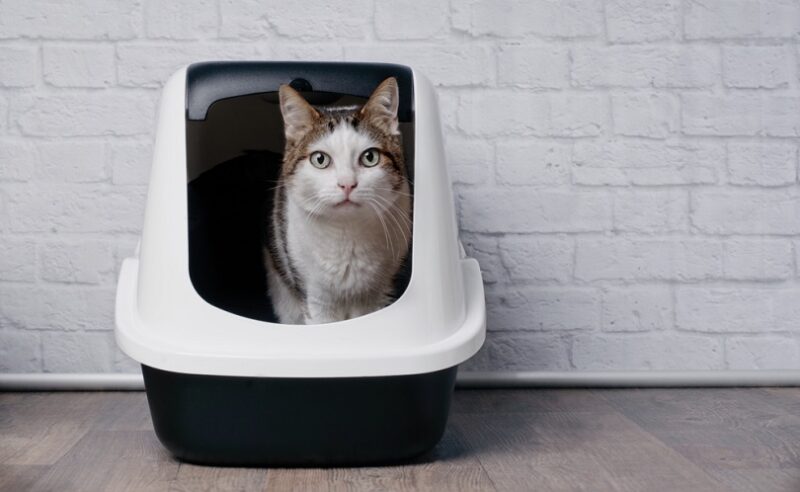
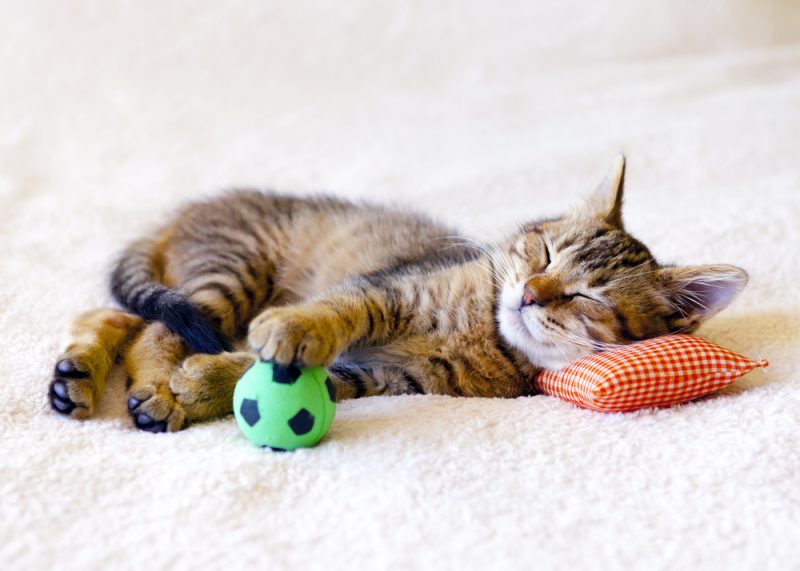


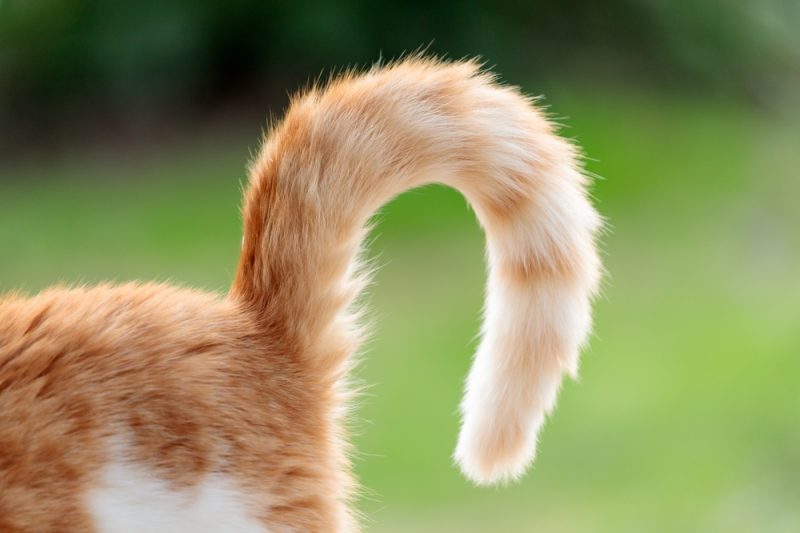
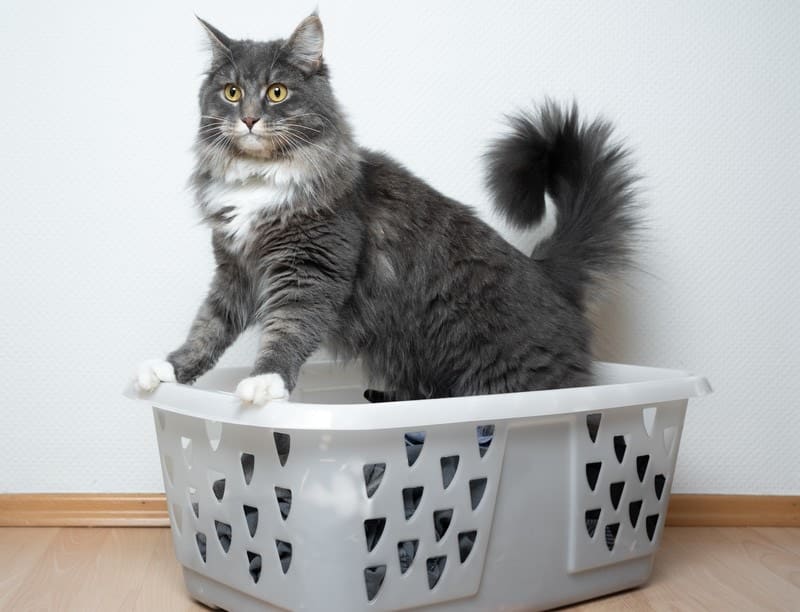



2 Responses
I need some guidance on what to do please. I introduced my young cat (almost 2 years old) to a laser pointer I had gotten from my sister cause she had an extra. And it was my cats first time playing with a laser pointer. But i noticed about a few weeks after I had gotten it and playing laser chase, that shes been acting odd. First she was rolling around in one spot on the floor like something was there, but when I looked there was nothing there and when I picked her up and took her to the living room she ran back to that spot.(she is fixed) Then a few hours later she acted more odd, i tried to bond with her and she acted really scared of me, she never was like that before the laser toy. She was always very clingy and always wanted to be around me and want me to hold her or pet her. But now she dont wanna be near me. I really dont know what to do, i and really scared to lose her like I had with my cat in the past. I just cant go through losing another support kitty.
Hi Lyndsey Johnson, sorry to hear about your cat. You can find some additional information here: https://www.catster.com/felines-weekly/do-lasers-encourage-play-or-trigger-obsessive-behavior/
Cats are so unique and different from each other that for personalized advice on her case, you will need a vet’s input. Please feel free to contact www.pangovet.com they can help you understand the specifics and guide you through the next best steps.